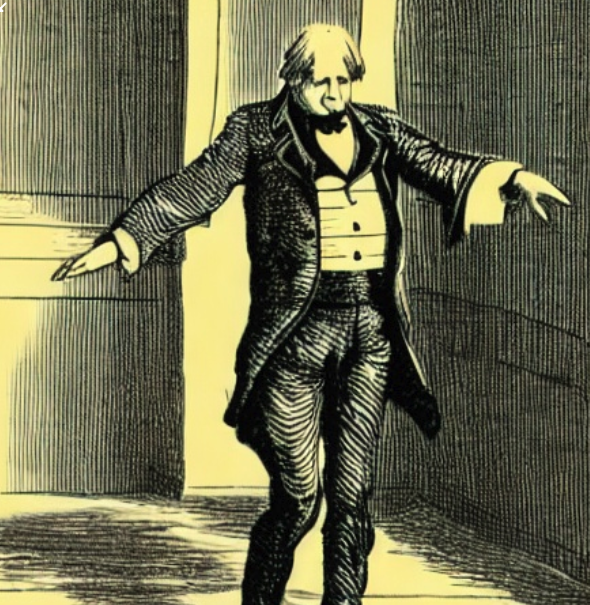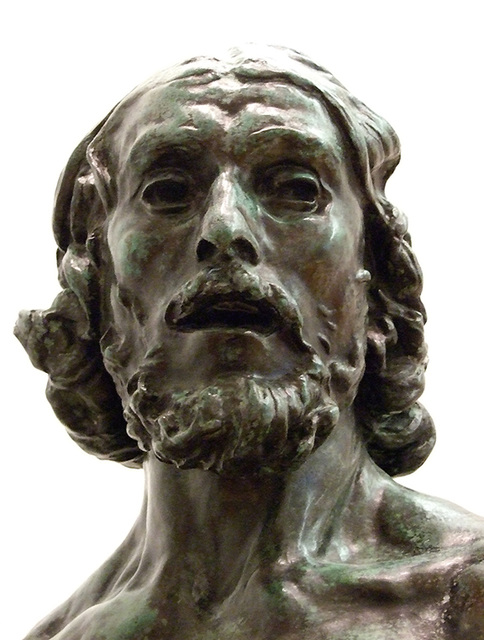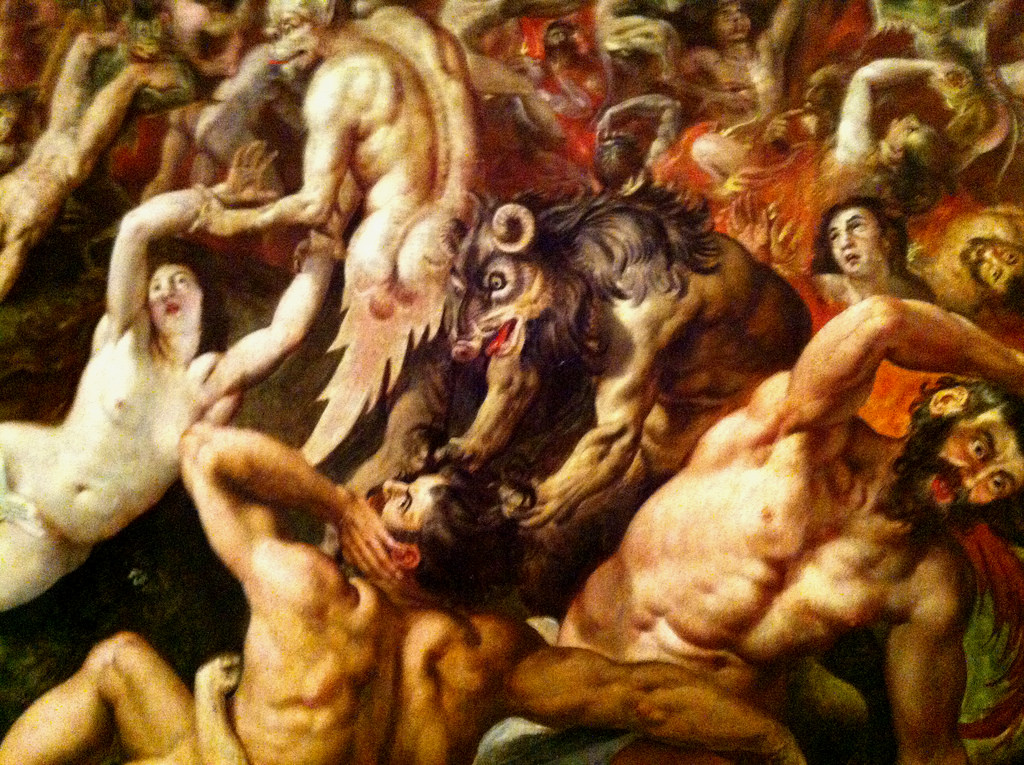The following is the second of a three-part series. The first can be found here. The earlier article by Prof. Hyman to which the author replies can be found here.
But what is always at stake in these arguments, writes Hyman, is the question of the contamination of the Absolute or God. Can we still speak of God as God if God is conditioned by what is other to God? This limitation is what Hyman, and the new interpretations, are interested in. What they find in Hegel is ‘a genuine [or originary] divine transcendence’[1] which makes possible the distinction between transcendence and immanence as something posited. This ‘truly transcendent and unconditioned’[2] God or Absolute is not distinct from the finite or immanent world because immanence is ‘the process of the self-manifestation of this divine Absolute.’[3]
In other words, its manifestation is the posited distinction between transcendence and immanence through which it appears in, and as, both. For Hyman, the doctrine of the trinity in Hegel expresses the triune nature of this unconditioned unity; God as Father (transcendent), as Son (immanence) and as Spirit (the mutually mediating relation of both). Hyman equates Williams’ Hegelian God to the transcendent element of the trinity and Žižek’s to the element of immanence in order to assert the ‘necessity of their co-belonging’ in a structure within which negativity (Spirit) is ‘the condition and dimension’[4] of their unity and difference.
In sum, Hyman argues that the new attempts to break out of the ‘left’ and ‘right’ readings of Hegel, whilst giving rise to opposing theistic and atheistic readings, nevertheless, open a path to the triune nature of Hegel’s God expressed in and by their differences. It is because Hegel’s philosophy reveals and insists on ‘the necessity of the logic of both … and’that they are not ‘alternatives between which we must choose.’[5] Rather, each ‘prioritises’ the aspect of transcendence (Williams) or immanence (Žižek) not to the exclusion of the other but as the condition of the possibility in which both sides are necessary and true.
Hyman holds in tension their atheistic and theistic interpretations in order to do justice, first of all, to the fact that each resist capture by religious or political readings of Hegel. And second, because he suggests that both sets of readings are ‘exemplifications and manifestations…of the same ‘thing’, albeit viewed from different ‘parallax’ perspectives.’[6] However, in what follows, and in employing Rose and Tubbs, I want to argue that the logic of the ‘both … and’ in Hyman’s analysis misses the comprehensive significance of the Hegelian logic that they, and Rose, draw our attention to, and therefore of the understanding of God that it carries.
In ‘Between Hegel and Wittgenstein, Reflections in the Wake of Gillian Rose and Rowan Williams,’[7] Hyman acknowledges that the absolute in Rose’s Hegel, whether a conception of God or of absolute ethical life, is a different kind of identity than one which is ‘pre-judged’ or ‘stated’ in the language of ordinary propositions. Hegel’s and Rose’s speculative absolute is implied in and by our experiences of the contradictions between absolute and relative ethical life, or religious and political consciousness and its social and historical bases. It cannot be ‘formulated as an abstract ideal’ but ‘is by no means strictly unknowable.’[8]
The implications of such an absolute for political critique and action are explored by Hyman in relation to Peter Osborne’s early criticisms of absolute ethical life in Rose. If philosophy ‘cannot specify concretely what this new mode of transformation is’[9] then it is impotent and unable to bring about transformation. Against this, Hyman argues that far from being ‘a renunciation of the political task’ the absolute in Rose can be read as ‘its radicalisation.’[10] The ‘ambiguous status of the absolute’[11]; that it cannot be stated abstractly yet remains knowable, has the only truthful claim on political transformation because it acknowledges positing as the ‘law of the formation of the ego and its cognition and miscognition.’[12] In other words, actuality ‘is posited or reflected in the ego’[13] which presupposes independence from an external world upon which it can impose an absolute.
Hyman writes little about actuality directly here, so it is worth saying a little more. Rose invites us to recognise actuality ‘as determinans of our acting by recognising it in our acts.’[14] If political activity does not recognise the relation to actuality which determines it, the relation which, ‘by definition, excludes part of it, is negative,’ it will not give rise to the experience of ‘re-cognition which sees what the act did not immediately see. To see the determination of the act is to see beyond the dichotomy between act and non-act.’[15]
Thinking the absolute is seeing ‘particular forms of relative ethical life as distortions, and which therefore opens up the possibility of our deliverance from them.’[16] The absolute and actuality in Hegel are ‘the foundation of the critique of law and of property relations.’[17] This is why Hegel does not overcome the ego in some illusory or impossible ideal, says Hyman, but ‘dissolves and maintains’ it as ‘a certain dispossession,’[18] within which we continue to ‘make decisions, act, and interact,’ but in ways ‘not fully determined’[19] by prevailing property relations. ‘If actuality is not thought, then thinking has no social import.’[20]
Despite the re-conception of political critique and activity in Rose’s notion of absolute ethical life, Hyman, with Osborne, remains uneasy about its capacity to offer a substantial vision of absolute ethical life. He goes on to invoke Williams’ theological reading of Rose, and Wittgenstein’s ‘language games,’ as supplements to Rose’s thinking, seeing in them both ‘a more positive “substantive” [affirmative] direction’ than one which leads seemingly to an infinity of dead ends. This move by Hyman, I suggest, shows that he remains hostage to a certain sort of logic or identity thinking regarding God or absolute ethical life.
He still posits the ambiguous status of the absolute in Rose as a negative dialectic in need of a more positive, and by implication non-contradictory affirmation. Critics of Rose, like Osborne, rarely push further into the logic that is not of ordinary propositions or indeed that of ordinary logic itself. Rarely do they seek to educate the abstraction of their own critique ‘by expounding the process of its determination,’[21] as she commends. But, too often, even Rose’s supporters, like Hyman, shy away from naming God or the absolute as the difficulty of this different logic and do so because they remain in thrall to logic’s continuing domination of the criteria by which truth, or the absolute, or God must be judged. At the heart of this domination is its control over the distinction between the knowable and the unknowable, a challenge that Rose meets head on in her work. This deserves a little of our attention now.
Rose and the Kantian Unknowable
In Hegel Contra Sociology Rose argues thatmodern reason, shaped in and by a Kantian and neo-Kantian diremption of law (objective ethical life/ the state) and ethics (subjective ethical life/religion) is abstract, caught up in the contradictions of its own attempts to think about the social and political conditions which shape it. The dualism of law and ethics, or legality and morality, took shape as a number of conceptual oppositions, most notably, universal and particular, freedom and necessity, autonomy and heteronomy. Freedom is the autonomous moral will whilst necessity is the condition of the heteronomous legal will. Freedom is thus conceived ‘in a negative sense, as freedom from necessity.’[22]
But law in general is also conceived by Kant as universality and necessity for law describes the universal and necessary conditions of our experience of objects and of freedom. As grounds for law then, the conjunction collapses because it is contradictory. It makes law in Kant necessarily transcendental but unknowable in-itself. This diremption at the heart of Kant’s definition of law is based, she argues, on the division between theoretical and practical reason which he takes to be unconditioned when, in fact, it presupposes the contradictions between universality and necessity in bourgeois social relations. Consequently, Kant does not see how those relations mask the domination of the object inherent in reason’s conceptualizations and justifications.
It leads to a number of ‘unknowables’; God, things-in-themselves, the source of the causality of the will, the transcendental unity of apperception. In other words, ‘the finite only is knowable, while the infinite transcends the realm of thought.’[23] But, if the concept that we have of the infinite is the concept that we have of ourselves and our freedom then, according to Rose, the unknowability of one is correspondingly the unknowability of the other. An unknowable infinite leaves us powerless to recognize, critique and change the social and political relations which determine us.
What Rose is drawing our attention to here is the political and historical contingency of unknowability, or what is to say the same thing, the contingency of the logic of identity or non-contradiction, which, Tubbs writes, is at work whenever truth is presupposed either as dogma, or within an accompanying skepticism.[24] I will return to this idea in Tubbs below. The point, for now, is that the division between the knowable and unknowable which is presupposed came to determine the abstractions of ethical thinking in philosophy and social theory after Kant.
Rose shows that pure reason in both theoretical and practical philosophy, or the unity in consciousness of the relation between concepts and objects, ‘does not unify’[25] because it presupposes that reason is external to the object. Social theory, in turn, repeats the diremption of law and ethics in its conception of freedom, the very separation that it seeks to overcome. Hyman’s own approach is not immune to this repetition, nor I think would he wish it to be, but as is often the case with interpretations of Rose and Hegel, he does not pursue the educational significance, or for Tubbs the absolute significance, of this repetition. He does not allow it to have its own necessity, or its own logic.
Rose, however, saw that Hegel’s thought anticipates the aporia of the repetition of such diremption, which is why he attempted instead to ‘embrace the impossibility of Kantian justification,’[26] or the assumption of truth as unknowable, through his speculative propositions. She writes that Hegel knew that if his thought were read as a series of ordinary propositions, it would be misunderstood because in presupposing the externality of the object it would assume that there is a stable identity between subject and predicate which is merely immediate or one-sided knowledge.
To read Hegel speculatively is to experience the abstractions of natural consciousness as a contradiction so that ‘the identity which is affirmed between subject and predicate is seen equally to affirm a lack of identity.’[27] In this experience, subject and predicate can, instead, ‘acquire their meaning in a series of relations to each other.’[28] Hegel’s speculative thought is not just the experience of contradiction or non-identity, nor is it merely Hyman’s retention of such relation against any dogmatic closure. It is, instead, insight into the illusions of the natural per se. What is often overlooked is that philosophical consciousness repeats the abstractions of natural consciousness in its identifying mode. It too loses itself to the experience that its relation to the object is part of a much wider landscape of relations and mediations not immediately intelligible.
Hence, ‘even though the oppositions of consciousness have been surmounted, we still cannot have an abstract statement of the absolute’ for it is the ‘path which must be continually traversed, re-collecting the forms of consciousness and the forms of science. This idea of a whole which cannot be grasped in one moment or in one statement for it must be experienced is the idea of the system.’[29] It is precisely ‘the system’ here that Hyman does not follow through on, by not acknowledging the truth of his own aporetic thinking.
Kant saw something of the way in which responses to the infinite repetition of such antimonies repeat themselves either as the assertion of a dogma that simply states their resolution, or as the scepticism that any non-dogmatic resolution is achievable and concluding therein that all such responses are otiose, and that judgement can be suspended. Hyman’s approach to the new relation of the new readers of Hegel does read dogma and scepticism together. But I suggest that his continued positing of God and truth as unknowable shows how he refuses aporetic relation a truth of its own.
As Tubbs has recently observed, Kant makes clear that ‘dogmatic and sceptical objections alike lay claim to such insight into object as is required to assert or deny something in regard to it.’[30] The objects that are presupposed in Hyman’s case are, for example, Zizek’s ontology of immanence and Williams’ theistic ontology. This already shapes how the argument will present itself and inevitably reproduces the logic of infinite regression, or of interminable antinomy, or, put differently, what Horkheimer and Adorno saw as the dialectic of enlightenment. An example of this comes from the conclusion of Hyman’s piece on Rose, echoed in his ‘New Hegel’.
Having raised antinomical questions about the competing priorities of philosophy and theology, or state and religion, Hyman says that his analysis ‘has done little to settle this question either way.’[31] He then asks, ‘what if that turns out to be the very point? What if the question is ultimately unanswerable? …What if there is a necessary and unavoidable circularity here?’[32] This would not be the end of Tubbs’ investigation, but rather another beginning of it. For him, the Hegelian, Rosean and educational vocation here is to explore what that unavoidable necessity is, and how its necessity is a different kind of logic to that which Hyman employs in his reaction to the necessity, that perhaps we should ‘rest content with this circularity, this equivocation.’[33]
In one sense, this takes us back to Rose, and indeed to her earliest thinking. She was a sociologist, reading critical theory, and expressing this same antinomy, this same infinite regression, this same dialectic of enlightenment, in the overtly expressed concern that ‘no critical consciousness or theory is possible’[34] if consciousness, as an object, is always already reified. ‘Any philosophy which systematically denies one pole of the dialectic, the subject or the object, or which, conversely, is grounded in one to the debasement of the other, will fall into antinomies, will reify its concepts.’[35]
For Rose, the key issue was how meaningful critique was within the totality of illusion. The logic of this question was preserved in her whole project thereafter. It is preserved in Hyman’s thinking regarding the unavoidable necessity that engulfs the relation of theology and philosophy, or of immanence and transcendence. But, unlike Rose, he leaves unexamined the life and logic of precisely this necessity.
Rebekah Howes is Senior Lecturer in the Department of Philosophy, Religions, and Liberal Arts at the University of Winchester (UK). She is the author of The Philosophical Voice of Leonard Cohen’ in Spirituality and Desire in Leonard Cohen’s Songs and Poems (Cambridge Scholars Publishing, 2017).
[1] Ibid., p. 28.
[2] Ibid., p. 29.
[3] Ibid., p.30.
[4] Ibid.
[5] Ibid., 31.
[6] Hyman, ‘The New Hegel and the Question of God,’ p. 31.
[7] Gavin Hyman, ‘Between Hegel and Wittgenstein, Reflections in the Wake of Gillian Rose and Rowan Williams’ in Misrecognitions, Gillian Rose and the Task of a Political Theology, ed. Joshua B. Davis (Oregon: CASCADE Books, 2018), pp. 126-142.
[8] Ibid., p. 128.
[9] Peter Osborne, ‘Hegelian phenomenology and the critique of reason and society,’ Radical Philosophy 32 (1982), pp. 8-15. Author’s emphasis. Quoted in Hyman, ‘Between Hegel and Wittgenstein, Reflections in the Wake of Gillian Rose and Rowan Williams,’ pp.129.
[10] Hyman, ‘Between Hegel and Wittgenstein, Reflections in the Wake of Gillian Rose and Rowan Williams.’ pp. 130.
[11] Ibid., p. 128.
[12] Rose, Hegel Contra Sociology, p. 212. Quoted in Hyman, ‘Between Hegel and Wittgenstein, Reflections in the Wake of Gillian Rose and Rowan Williams,’ p. 130.
[13] Ibid.
[14] Rose, Hegel Contra Sociology, p. 204.
[15] Ibid., pp. 204-205.
[16] Hyman, ‘Between Hegel and Wittgenstein, Reflections in the Wake of Gillian Rose and Rowan Williams,’ p. 128.
[17] Rose, Hegel Contra Sociology, p. 206.
[18] Ibid.
[19] Hyman, ‘Between Hegel and Wittgenstein, Reflections in the Wake of Gillian Rose and Rowan Williams.’ p. 130.
[20] Rose, Hegel Contra Sociology, p. 214.
[21] Rose, Hegel Contra Sociology, p. 185.
[22] Rose, Hegel Contra Sociology, p. 55.
[23] Ibid., p.44.
[24] Nigel Tubbs, Socrates on Trial (London: Bloomsbury, 2022).
[25] Ibid., p. 54.
[26] Ibid., p. 48.
[27] Ibid., pp. 48-49.
[28] Ibid., p. 49.
[29] Ibid., p. 182.
[30] Immanuel Kant, Critique of Pure Reason, trans. Norman Kemp Smith (London: Macmillan, 2007), A389, p. 357. But Kant did distinguish skepticism as a principle of ignorance from the skeptical method which exposes the deceptive appearance of an object, A424/B451.
[31] Hyman, ‘Between Hegel and Wittgenstein,’ p. 141.
[32] Ibid.
[33] Ibid.
[34] Gillian Rose, The Melancholy Science (London: Macmillan, 1978), p. 48.
[35] Ibid., p. 75.




